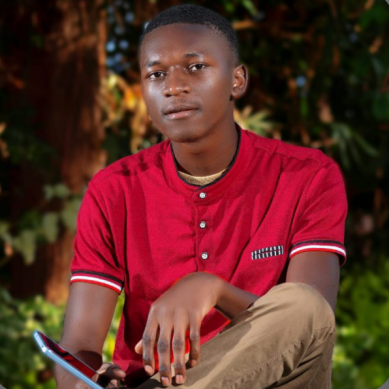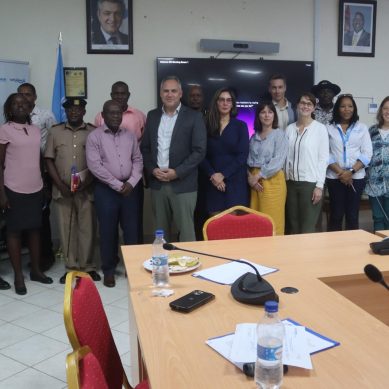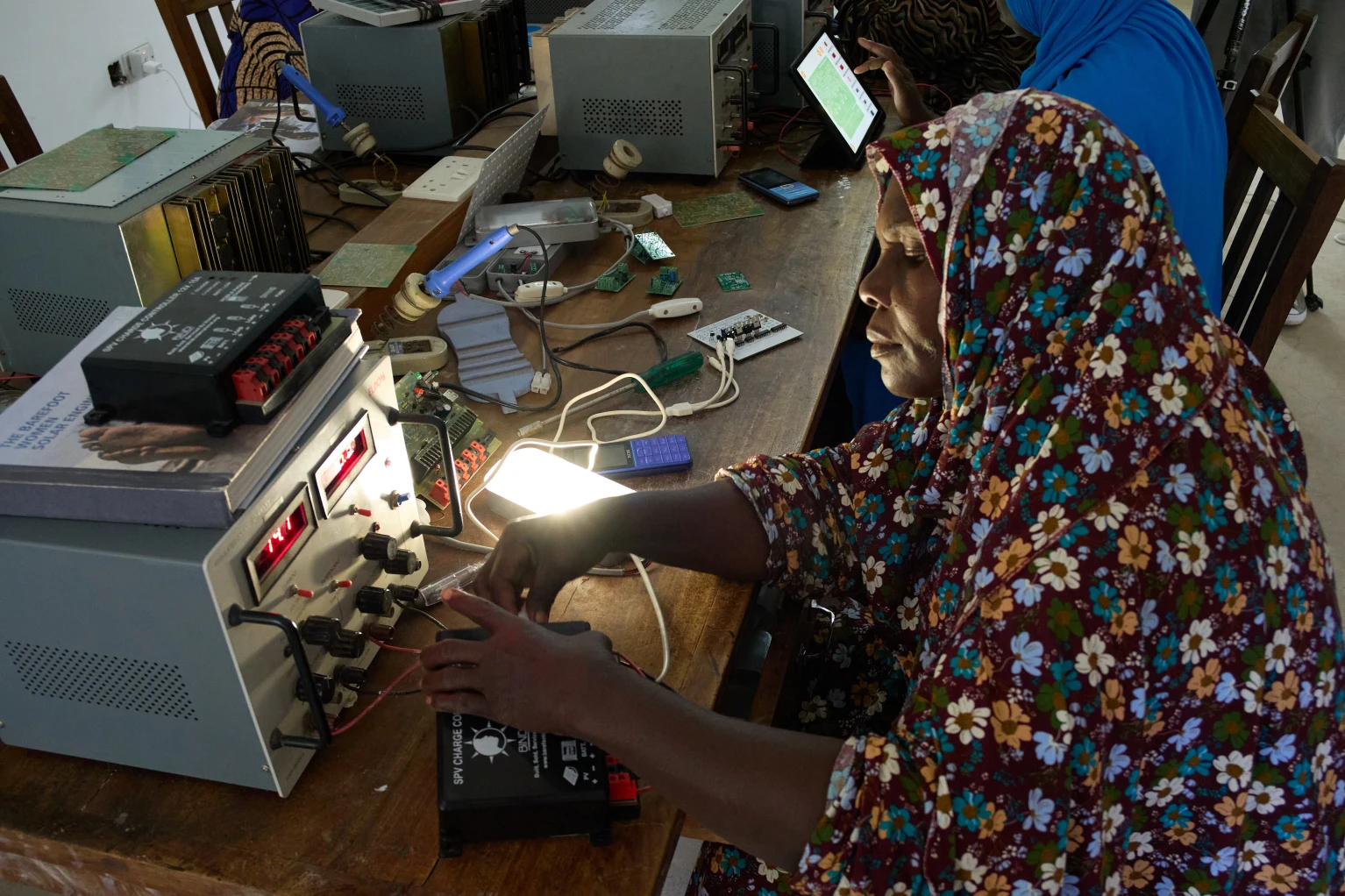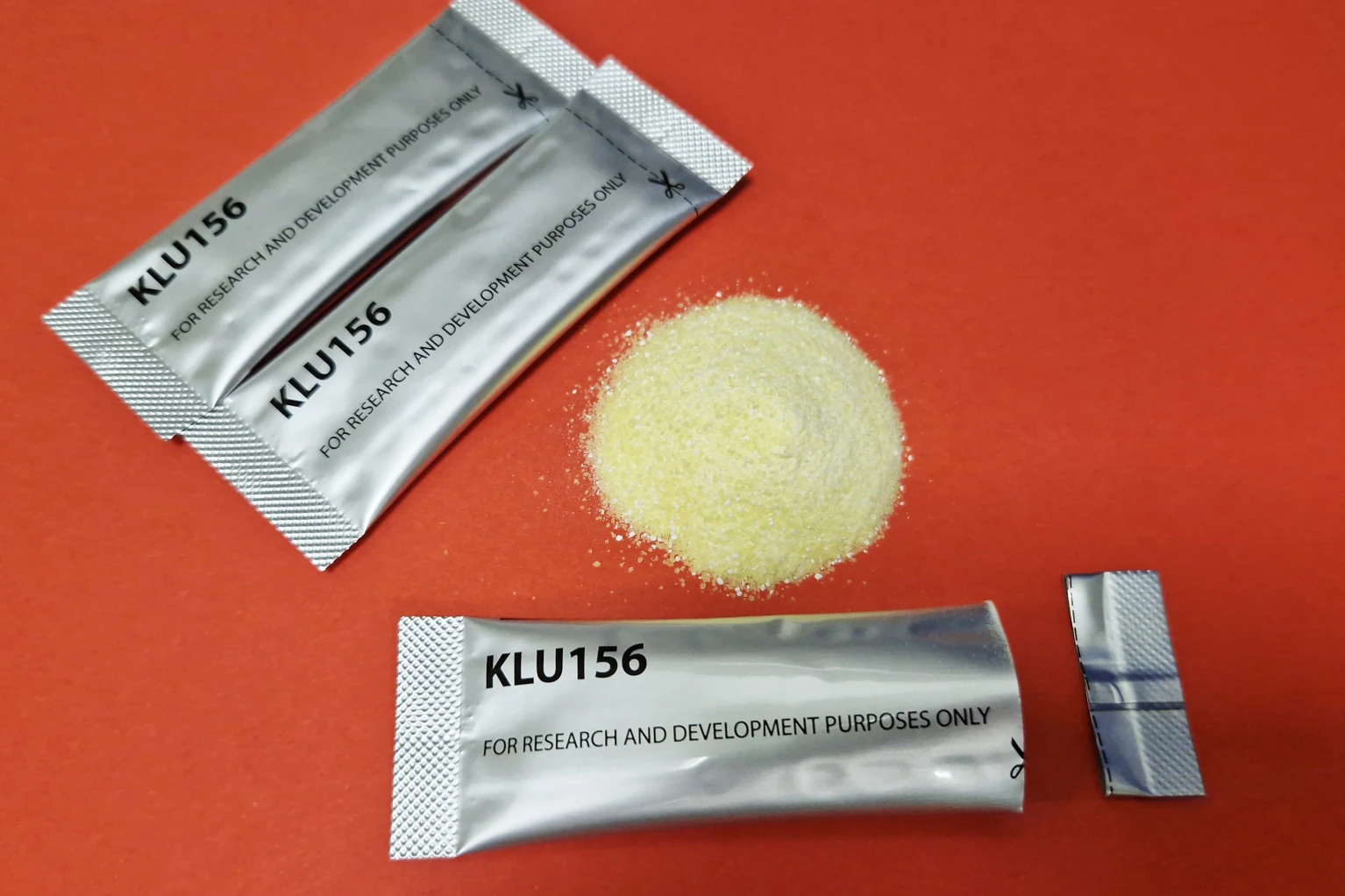
I was just beginning to know my father when the light went out of his life. I was a young adult, freshly out of my teens and in the formative years of young adulthood. He was a tall lanky lad with a humble mien. The little I know about him is what my mother shares with us. To us children, he was a dad, and a resolute family decision-maker and problem solver. As long as he was there all problems in the world were solvable.
There is no mistaking: my dad dwells in my mother’s mind and every so often when something significant happens in the family she will always invoke his name and wish he was around to play a role. It is from her that we get snippets of how they met and married; their relations; their trials and triumphs; the joys and jives of life.
From mum, I know dad was a dandy! He dazzled young women but would never overindulge. He was very choosy, which is how he proposed and married my mother, once he found the right partner. Personal discipline was his byword.
Such are the titillating stories about my father that many times I have wished he was alive so I can dream with him, laugh with him and hear him rebuke me and my sibling or listen to his wise counsel.
I know he was a loving guy, which is why mother still refers to him as msecha wasee (an honourable and respectable traditional manner married women in western Kenya refer to a husband). Mum talks about him as if he were still with us.
Alas, yes! He is! My dad is forever alive in her mind and his children’s mind. We always feel he is the family’s guardian angel and watches over us from wherever he is in Heaven. His absence from our lives made up for the everlasting affection we all have for him.
Dad! The guy who mesmerised all around him with his charm and kindness humaneness. It is the same spirit that was transmitted to us through my mother. This was the quintessence of a man and woman marrying and becoming one.
If the Holy Spirit had not accepted my mother’s prayer, she once told me, I would have just existed only in the mind of my parents. According to my mother, I am a miracle child, arriving three years after she had a miscarriage.
Then I tested rejection. From it, a strong bond evolved between me and my father, which evolved into the tie that binds the family.
Her journey to parenthood was eventful: both an emotional and physical torture. She has on many occasions reminded me about the torture that preceded my birth. It was – and still is – a story of endurance and longevity.
Every time she sees me down with migraine, memories of how she tried to have children return to mind with a gush. But she stayed the course. Because of what she went through, I vowed to stay the course too. In life, I will never be a quitter.
Grandma’s dream
On March 4, 2004, in Kakamega County, Kenya, a small rural town called Matunda witnessed my arrival into the world. I was born a heavy, bubbly round baby boy – what some kin and kith called a miracle baby. It elated my parents, I am always reminded. However, it came with parenting challenges.
My birth, mum told me, was not just an ordinary moment of joy and celebration for the family; it was the climax of years of pain, loss and prayer – especially for my mother.
Her journey to giving birth to me was filled with endless battles. Long before I came into the world, she had suffered a heart-shattering experience of giving birth to a stillborn baby girl. That loss tore her to shreds. Year after year, she tried to conceive and carry a pregnancy to full term, but her body always gave in to endless biological complications. Each time, the pregnancy would end prematurely. For three years, disappointment and grief tormented her.
When I was finally conceived, she recalled, the journey did not get any easier. My mother bled heavily during the pregnancy, her body weakening with every passing month. She consumed countless herbs recommended by friends, neighbours and traditional herbalists, but nothing seemed to work. Each attempt only brought more complications. Many would have given up, but not my mother. She was determined to fight for the life inside her, no matter the cost.
A few days before I was born, she had a dream. In it, her late mother-in-law – my grandmother, who later passed on in 2017 – appeared and showed her a traditional herb. In the dram, my grandmother instructed her to pluck it from the hills, boil it and drink it. That would end her pain.
Her narration of events after the dream is hilarious. The next morning, heavily pregnant and pushing her potbelly akin to a queen mother, she painfully picked up a jembe (hoe), placed it on her left shoulder and struggled to walk up a nearby hill. It is said that herbs with healing powers are often found on hills and mountains. So, with determination of a queen bee, she went up the hill in search of the plant she was shown in the dream. Against the odds, she located it. She uprooted the herb and took it home. She peeled it and cut the lean bark into tiny pieces, which she boiled with water.
When the boiled herb cooled she drank the bitter concoction, and true to the dream, the pain vanished. It was as if the heavens had heard her prayer and granted relief from pain.
That was the beginning of the miracle that I am.
Nasirembwa
While carrying the pregnancy to term was a struggle, delivery proved to be an eternal test of endurance, determination and optimism. Anxiety added to emotional turbulence. Like all expectant women, she was not sure whether baby would arrive alive. She was on the edge of faith and she felt like her a trial of faith, which also made her become anxious about possible deformity. She says it felt like an eternity. The pangs of imminent motherhood seemed everlasting compared to the nine months of cumbersome pregnancy.
The screams of new-born tossed her of out the reverie. The baby was okay! Hooray rent the delivery ward as nurses and relatives celebrated the arrival of the baby boy!
On that hospital bed, moments before I entered the world, my mother told me she had another dream. This time, it was her late father-in-law – my grandfather – appeared to her. Bakora (walking stick) in hand, he looked at her and muttered:
“My daughter, have you seen me? I really love you, and I wish you well. Take great care of my son and never forget me.”
Moments later, I was born. Because of this dream, my mother gave me the name ‘Nasirembwa’ after my late grandfather. It took me long to know the meaning of the name. It is derived from a tree with healing powers. The root of the name is murembe, which is used to treat – among other diseases – mumps. The Luhyia community in western Kenya use the tropical plant, also known as Nandi flame tree, which flowers towards the end of the dry season and bears sun-shaped bright red flowers that signal change of season from dry to long rain season. Nasirmbwa symbolises a season of plenty and end of suffering. I carry the name with pride, knowing it is a gift from my family’s history and a sign of divine connection.
When I was born, my father was not immediately excited. In fact, he was unhappy. He already had six children – including a pair of twins he had not expected. To him, the family was complete, maybe even too big. He had advised my mother to embrace family planning but she desired another child. That silent conflict between them meant my arrival was met with mixed feelings.
While my mother rejoiced, my father was dejected. He carried me with sadness, not joy. He even asked my mother to move from their bedroom to another room, where she slept on the floor with her new-born son. My mother wept, prayed and asked God for intercession.
One evening, everything changed. As my father lay in bed alone, something mysterious happened to him. My late grandfather appeared to him in a dream, the same man who wanted me named after him. With the same ‘bakora’ in hand, he questioned my father:
“Why have you forsaken me? Why have abandoned the child named after me?”
He then hit him hard, leaving him in pain and shouting for help. When he woke up from the dram, everything changed. He rushed into the living room with tears in his eyes, lifted me and murmured words into my ears, accord to mum. She said the mumbling sounded as if he was asking for reprieve from my grandfather’s spirit. From that day on, hate turned into love. My father became my greatest protector, provider and friend.
From the day he embraced me, my father loved me with all his heart. Being his lastborn child and a son, he lavished me with unprecedented parental love to the chagrin of my siblings. His affection towards me, naturally, elicited jealousy and some mild sibling rivalry. As a toddler, I relished it.
Dad valued education above all else. Whenever school requirements – like fees, books or uniform – arose, he provided in excess of what was necessary. While my classmates struggled for basic educational needs, I had what seemed like an oversupply.
I was often asked: “How come you always have everything before others?” The answer was simple: Dad loves me.”
He was strict but just. Seriousness in education was straight away rewarded with unqualified love and support. It inspired me. I excelled in class and teachers spoke so highly of me, which brought me even closer to my father. He took special interest in everything I did and supported me with whatever I needed. So keen was my dad on my classwork that my siblings often asked me to speak to him on their behalf when they needed anything.
My father was also a man of generosity. Despite his humble beginnings and limited resources, he extended his hand to his extended family: parents, siblings, cousins and even neighbours. As a police officer, he served the community with dedication, ensuring ‘domestic law’ and order prevailed.
At home, he was gentle and polite, often choosing silence over conflict. My mother, on the other hand, was talkative and quick to anger. But the balance between them was divine. Her strictness and his humility created a stable environment for us as children to thrive.
Life with and around my father was a moment in my already that marked with endless happiness. So attached were we to each other that every time he returned from work, he would ask for me first. In turn, I made sure that I was at home whenever he needed me. If I did not respond, he would search for me until I appeared. He always came home with gifts. His bag full of gifts for all the children but I had a special place in his heart.
As I grew up, I came to realise the gifts were a deliberate way of encouraging positive behaviour and trumping truancy early. To a large extent, he succeeded. My siblings and I never had discipline issues at home and school. In the neighbourhood, we were something akin to the beacons of good conduct.
But more than the gifts, it was the time we spent together talking, laughing and sharing stories that meant the world to me. When he also left for work, he would also speak to me last. His parting words, always, were: “Brian, take your studies seriously. When you find some free time, move into your study room and do some reading.”
It was imperceptible early habituation to academics that has become a part of a part of my life. Books became my way of life.
Strength of a woman
While my father provided, my mother shaped us with discipline. She was strict, sometimes harsh, but never without reason. In spending most of our childhood with her, we came to understand her ways. She made huge sacrifices, carrying the burden of raising us when my father was away working.
Her strength was unmatched. She had already endured the loss of a child, the pain of difficult pregnancies, and the heartbreak of rejection. Yet, she never gave up. She prayed, she fought difficult battle or thee family and she endured. She was a tigress that fended for the family and defended her children from malevolence. As long as God grants her life and good health, she remains the pillar of our family.
Her lessons were not always gentle, but they moulded me into who I am today.
Storms of life
In 2024, everything changed. I was in my second year of university when my mother called with troubling news.
“Your dad is unwell,” she told me.
She said she had tried to find out what had gone wrong him but the old man pretended that all was well. He had not seen a doctor, instead went to a nearby pharmacy for off the counter drugs. His condition continued to deteriorate during day and by night he could no longer swallow even the tiniest morsel of food. He could only drink, but with a lot of pain. Worried and fearful of the ensuing situation, my mother secretly asked me and my sister to go gone home for what she referred to as a “homecoming”.
It turns out, it was an invitation for bid dad farewell before he transitioned to afterlife.
On arrival, I was shocked to find that the strongest man I had ever known was skinny and a pale shadow of the vibrancy I had known all my life. That night, I saw him struggle to eat his favourite meal – ugali with chicken. The sight of him struggling to feed pained me. I was consequently drained energy. I, too, could not eat. My attention was fixated on this man who had transformed into a wretched being. It is then that I realised life changes like thee weather: one moment you are health and full of life, then out the blues that brusqueness dissipates into a vanity.
After a few minutes of painfully struggling to be cheerful, he went to his bedroom. It was a moment of reckoning as that evening stirred up a lot of questions in my mind. This is because dad did not open up on his state of health. He was obviously unwell but could not admit he was in poor health.
Still, when he got up the following morning, I could see the old man was struggling. His usually long strides and gait had suddenly become short, slow baby walk. His sluggish amble betrayed suppressed inner pain – an agony that needed attention. Still, he could not admit he was suffering.
On the third day after our arrival, the situation was no better. When he woke up that morning, I saw a man who was still struggling to move about. Just as had always been in the family, we provided whatever support we could. We were determined to restore his, vibrant, lively nature and vivacity.
After a week, my sister and I travelled back to Nairobi. I went to bed that day without praying for my father because I felt a lot of pain on his behalf. I wished for God’s intercession for his healing.
In August, the situation had worsened. My mother had no choice but to inform my uncles to come and help. On arrival, my dad’s state had reached the nadir. By the time they made decision to take to hospital, it was too late. He was diagnosed with throat cancer. He also had stomach complications that affected the food pathway. I suspect it he had ulcerous wounds in the stomach that made it difficult to eat sold food.
As h was preparing to start treatment on October 1, 2024, he slipped into the netherworld. Just like that, I had become a partial orphan. I had no father. It is a painful reality, but I had to start accommodating myself to the developing reality of the absence of a man I had come to believe would be in my life for eternity.
When I arrived home for the funeral, there lay man who had once been my world. Silent! Peaceful! But he was no more. Breathless! He lay there silent in a white coffin. His death broke me in ways words cannot express.
He had “fought the good fight” and “finished the race and kept the faith.”
I will never see him again. I knew the onus was on me to carry on with his legacy. His memories will linger for forever in my mind. “Now there is in store for me the crown of righteousness, which the Lord, the righteous Judge, will award to me on that day – and not only to me, but also to all who have longed for his appearing.”
Adjusting to life without him has been the hardest chapter of my life. I was only 20 years old when he left us. My siblings and I now look after our mother. She has been strong, even in adversity. I know the weight of widowhood weighs her down. But she has been the pillar of the family.
Every day, I pray for her. I want God to protect her. I took lessons from my father, out of which the standout moral was the love for his family, his strong belief in education, his humility in adversity and his generosity.
Looking back, my life is a testimony of God’s grace. From my mother’s pain and resilience, I learned endurance. From my father’s transformation and love, I learned forgiveness, responsibility and the power of second chances.
This is not a story about me. It is about a father who reversed rejection and mad it a fraternal bond that endures to even in his absence. This story is my tribute to my parents – my father, who showered me with love until his final breath, and my mother, who continues to stand strong. Their story is my story. Their sacrifices are the reason I stand today.
If there is one lesson I carry from them, it is this: love honestly, endure faithfully and value your parents while you still have them. It is a father’s love and a mother’s strength mould an individual and determine one’s destiny forever.
- Tell Media report / By Brian Nasirembwe








